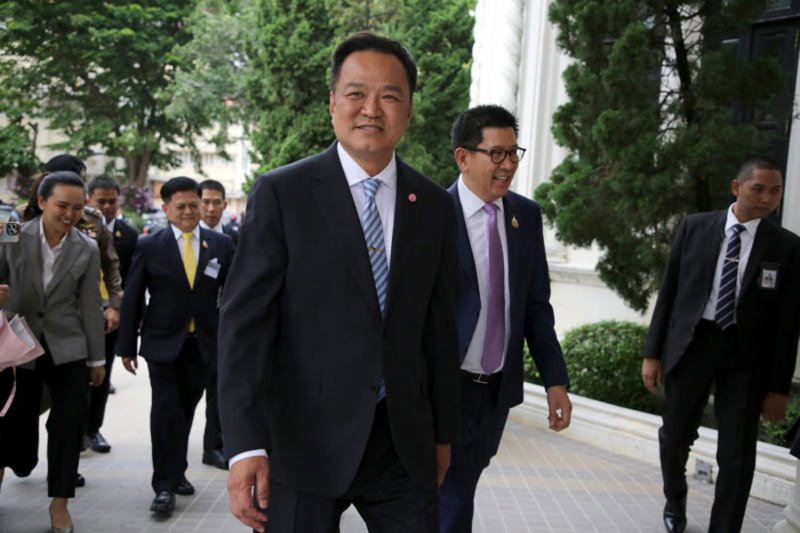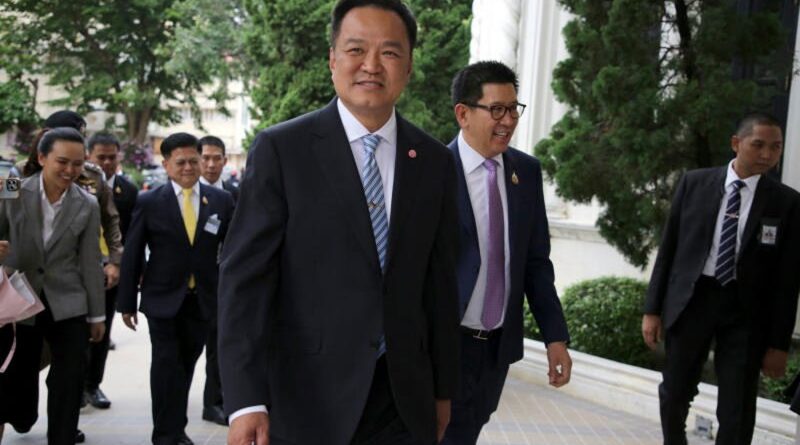National Security Council backs border fences
Military to work out the details, PM says

The National Security Council (NSC) has approved the construction of fences along the Thai-Cambodian border, Prime Minister Anutin Charnvirakul announced.
Speaking after an NSC meeting, Mr Anutin said on Thursday that the details — such as location, design, and timing — will be determined by the Thai military based on terrain conditions and local needs.
Mr Anutin also addressed the issue of Cambodian encroachment in the areas of Ban Nong Chan and Ban Nong Ya Kaeo in Sa Kaeo, saying that the matter must be handled in accordance with the law while also considering humanitarian principles and the broader implications of any legal actions.
The question of which legal framework to apply — martial law, forestry law, or immigration law — will be considered by the Royal Thai Armed Forces Headquarters in consultation with the Sa Kaeo governor and relevant agencies, including the Interior Ministry, the prime minister said.
When asked about the negotiations with Cambodia regarding the withdrawal of Cambodian forces from disputed territory, the prime minister confirmed that discussions are being held within the framework of the General Border Committee (GBC), before adding that the latest meeting was attended by the Minister of Defence.
He noted that Thailand has set certain conditions for Cambodia. If those conditions are not met, Thailand will not respond to Cambodian requests — for example, to reopen border checkpoints.
“I don’t want to use the word ‘pressure’, because there’s already a great deal of pressure on both sides. But we will take steps to demonstrate clearly that Thailand is ready. If this is the way they wish to proceed, then Thailand is prepared as well,” Mr Anutin said.
“And if Cambodia’s leaders genuinely want to protect the well-being of their own people, they must accept our conditions.”
Foreign Affairs Minister Sihasak Phuangketkeow added that, under the GBC framework, three key points have been agreed upon: Cambodia must clear unexploded ordnance from the area, heavy weapons must be withdrawn, and cross-border crime must be jointly suppressed.
He said detailed discussions are still underway. Notably, Norway has already offered assistance with ordnance clearance, and it is believed that other countries will also be willing to help.
The meeting, the first under Mr Anutin’s government, also endorsed a set of continuing measures to address Thai-Cambodian tensions, building on decisions made at the previous NSC meeting.
These include military and border security strategies, trade controls, and proactive diplomatic engagement at the international level.
The government dismissed a recent report in The New York Times, which claimed China had delivered rockets and artillery shells to Cambodia just weeks before the outbreak of clashes between Thailand and Cambodia.
Defence Minister Gen Nattaphon Narkpanich said the report cited old news, stressing the weapons were delivered prior to the Thai-Cambodian conflict.
He said that if further tensions or conflicts were to arise, China “would carefully consider its actions”.
Source – Bangkok News




